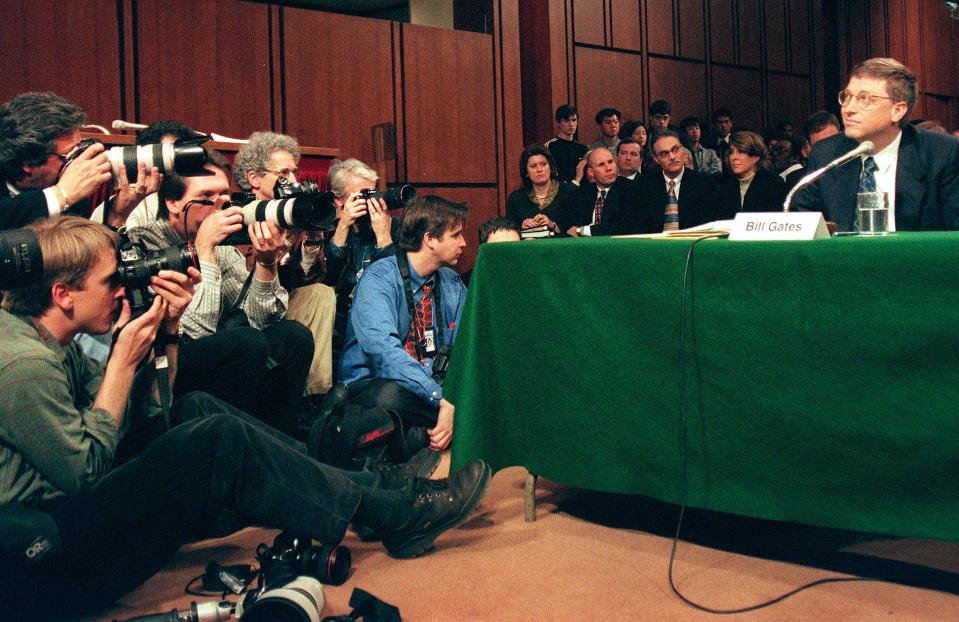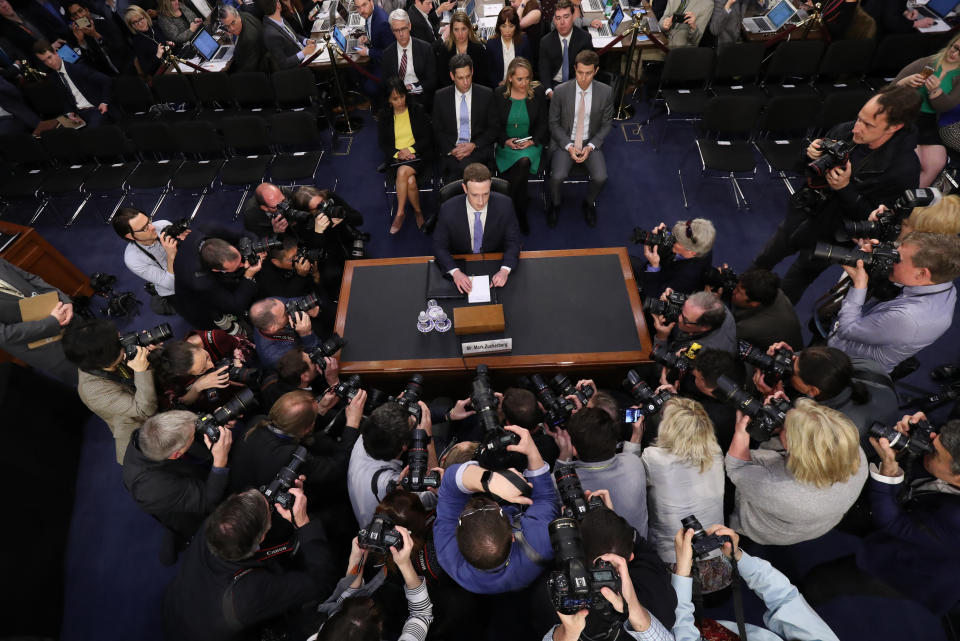Who did better before Congress: Zuckerberg or Gates?
There’ve been a number of “moments” during Mark Zuckerberg’s testimony before Congress this week, but to me, one of the most interesting came from Utah Republican Sen. Orrin Hatch, who said: “Well, in my opinion…this is the most intense public scrutiny I’ve seen for a tech-related hearing since the Microsoft hearing that — that I chaired back in the late 1990s.”
True that, Sen. Hatch. True that.
Specifically, what Hatch was referring to was Bill Gates testifying before the Senate Judiciary Committee—chaired by Hatch—in March of 1998, almost exactly 20 years ago. Microsoft was called to Washington to answer questions about monopolistic practices, specifically its 90% market share with its Windows operating system, and also about its Internet Explorer browser and bundling it with its operating software, whereas Facebook faces a host of issues, including privacy, data collection, and election ads.
Broadly speaking though, you could say that Microsoft and Facebook were called before Congress for the same reason. Lawmakers considered them to be too big and needing oversight. Both Microsoft and Facebook, of course, are West Coast behemoths, far from the purview and reach of Washington, D.C. and its bureaucrats.

More similarities: Both Gates and Zuckerberg went to Harvard and dropped out, and of course both are consummate, iconic billionaires idolized and celebrated in movies and on magazine covers, and also lambasted as awkward, clueless over-empowered uber-nerds.
Age check: Gates was 42 at the time of his hearing, as opposed to Zuck who’s currently 33. Hatch was 64 then and, of course, is 84 today.
Gates’s testimony made a huge splash back then, although maybe a bit less than Zuckerberg’s. After all, Facebook’s issues are much juicier, more political and impact more consumers directly than the drier issues Gates and Hatch tussled over two decades ago. Though I have to say, the parrying back then between the senator and the CEO was feistier. Here’s a great clip of Hatch and Gates going back and forth.
Overall though, Zuckerberg probably did a better job than Gates, who was at times combative, evasive and non-responsive. But then again, Zuck—and his legion of coaches—had Gates’s experience to learn from.
Gates also appeared before lawmakers with rival CEOs, Scott McNealy of Sun Microsystems, and Jim Barksdale of Netscape. Neither were shy about beating up on Gates.

According to CNN: “Barksdale called for a show of hands to make his case against Gates’s company. ‘How many of you use Intel-based PCs in this audience, not Macintoshes?” he asked. Several hands went up. Barksdale continued: ‘Of that group who use PCs, how many of you use a PC without Microsoft’s operating system?’ When all the hands went down, Barksdale turned to the Senate panel and said, ‘Gentlemen, that is a monopoly.’”
What happened after Gates’s testimony has to put in a chill in Zuck’s bones. The Justice Department, along with Attorneys General of 20 states, sued the company. The litigation, aftermath and remedy dragged on for years, costing Microsoft untold tens of millions of dollars, never mind countless hours of executives’ time. (I remember that era well. I was a reporter at Fortune magazine at the time and my colleague Joe Nocera wrote an epic series of articles covering the case of U.S. v. Microsoft.)
What will happen now to Facebook is of course an open question. To say more scrutiny is axiomatic. That goes without saying. If there is anything for Facebook to take away, it’s to move fast and hash out a settlement with the Feds sooner rather than later. Lose a few battles to win the war. And move on.
Andy Serwer is editor-in-chief of Yahoo Finance.

